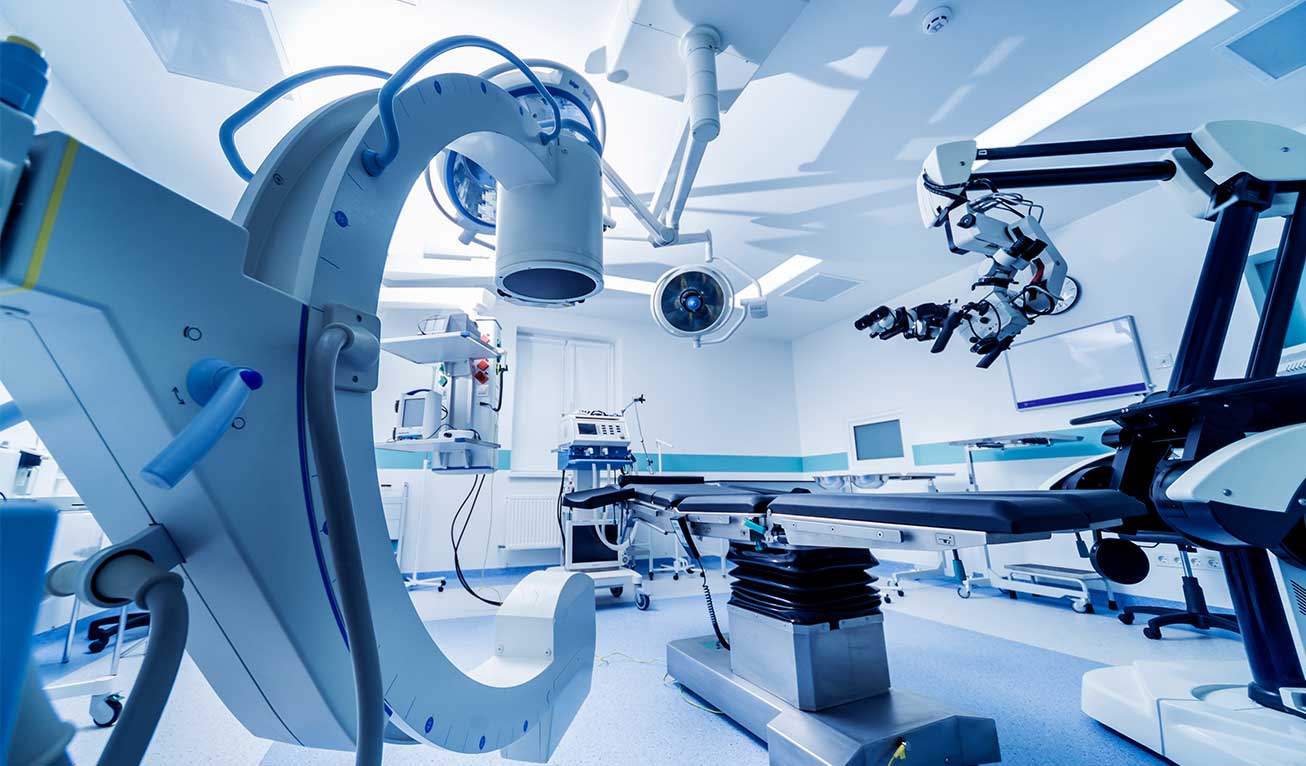
For those grappling with persistent knee pain due to injury, arthritis, or other knee-related conditions, the solution lies in knee replacement surgery. When conventional treatments prove ineffective, doctors often recommend this surgical intervention to alleviate discomfort, restore mobility & offer good quality of life. The key to a successful knee replacement lies in its precise implant positioning.
Yet, a considerable apprehension often looms larger than the discomfort itself—fear of surgery, blood, and potential bone damage. Consequently, patients typically explore all non-surgical avenues before considering knee replacement surgery.
In certain instances, patients find themselves at a crossroads when decision time arrives. Traditional knee replacement surgery has occasionally yielded unsatisfactory outcomes due to these concerns.
However, the emergence of robotic surgery, guided by experienced surgeons in reputable medical facilities, offers a promising solution. Employing AI-enabled robotic technology, this innovative approach ensures heightened efficiency, accuracy, and precision during implant placement. The choice between conventional and robotic surgery ultimately rests on the surgeon's expertise and the surgical environment, underscoring the importance of informed decision-making.
Global data reflects a striking trend: three million knee reconstruction surgeries are performed annually worldwide, with robotic assistance accounting for 11% of cases in 2020. Predictions indicate a surge, with robotic-assisted knee reconstructions projected to reach 700,000 globally by 2030.
Navigating the Cost of Robotic Knee Surgery in India In India, the cost of robotic knee replacement surgery varies:
Robotic knee surgery in India offers a cutting-edge solution for individuals who have endured agonizing knee conditions for years. The nation's rapid development is leaving an indelible mark on the medical landscape, with healthcare professionals acquiring education from esteemed global institutions and integrating top-tier technology.
India's strides in research and novel treatment development are evident. Its medical facilities boast technology at par with developed nations but at significantly lower costs. The affordability of medical expenses in India positions it as a prime destination for knee replacement procedures, making advanced technologies accessible to all. Equipped with state-of-the-art machinery, Indian hospitals provide effective and successful robotic knee replacement surgeries.
The cost of robotic surgery is comparatively more than traditional knee replacement surgeries. The main reasons include:
Robotic surgery tailors the procedure to the patient's unique anatomy, utilizing a fusion of computer and robotic guidance to position the total knee implant. While the term "robotic surgery" might evoke images of a fully automated procedure, the technique involves the surgeon inserting a miniature 3D camera and dime-sized surgical instruments through small incisions, typically around 3 inches in size.
The camera offers a magnified, panoramic view of the surgical area. By manipulating robotic arms attached to surgical instruments via the system's controls, the surgeon precisely removes the affected knee portion and replaces it with a new implant, thereby minimizing infection risks and accelerating recovery.
Surgeons opine that this technique achieves sub-millimetre, sub-degree accuracy unattainable with traditional handheld instruments like saws.
Lately, robotic knee surgeries are gaining momentum in India. This transformative era is ushering in a new era in hospital care, with robotics serving as a vital tool for complex surgeries, offering unparalleled benefits over traditional methods.
For delicate areas demanding meticulous precision, the surgical arm's robotic assistance manoeuvres through tight spaces with utmost accuracy. These robots are becoming integral to the surgeon's toolkit, particularly evident in procedures that hinge on precision and exactitude.
Operating based on 3D images from CT scans, the robotic system executes a range of tasks with unparalleled accuracy:
Robotic knee replacement surgeries in India exhibit exceptional precision. They enable surgeons to perform partial knee replacements 2-3 times more accurately than conventional methods, sparing healthy tissues while removing diseased ones.
The accuracy of robotic knee replacement surgery has reshaped perceptions among both surgeons and patients, rendering once-considered untreatable complex knee issues viable for treatment. India's reputation for pioneering novel technologies suggests further advancements are on the horizon, poised to benefit those with knee problems and potentially revolutionize medical practices globally.
The robotic knee replacement options in India are gaining popularity with two notable types of robotic knee replacements:
Unveiling the Benefits of Robotic Surgery Robotic surgery is surely a game-changer, empowering surgeons with essential information to execute knee procedures with utmost precision. Beyond this, the technology establishes virtual boundaries on the bone surface, preventing inadvertent deviations from the surgical plan. This safeguard ensures that only the damaged bone is affected, resulting in a better-balanced and accurately positioned prosthesis.
Other benefits include the following:
Robotic surgery addresses a broad spectrum of conditions, proving effective for people with various stages of osteoarthritis in different knee compartments. Even individuals with underlying health conditions like diabetes, obesity, and inflammatory disease can find solace in robotic knee replacement surgery.
While both robot-assisted and traditional knee replacement surgeries offer positive long-term outcomes, each accompanied by its own set of advantages and risks.
Robotic surgery, however, often boasts:
These factors grant a distinct edge to robotic knee surgery in India, fostering smoother and swifter recovery for patients. Though the overall success of the procedure is high, patient satisfaction can vary. Robotic knee surgery typically involves a recuperation period of 2-3 weeks, considerably shorter than the 8 weeks associated with traditional knee replacement surgery.
Even after feeling fully healed, adhering diligently to post-operative guidelines is paramount, ensuring complete recovery in about 3-4 weeks in some cases. Robotic knee replacement surgery in India embodies a paradigm shift in knee health treatment. The fusion of technology and surgical expertise redefines precision, accessibility, and patient outcomes, ushering in an era where knee problems need not be a lifelong struggle anymore.
Source: https://www.lyfboat.com/knowledge-center/robotic-knee-replacement-cost-in-india/